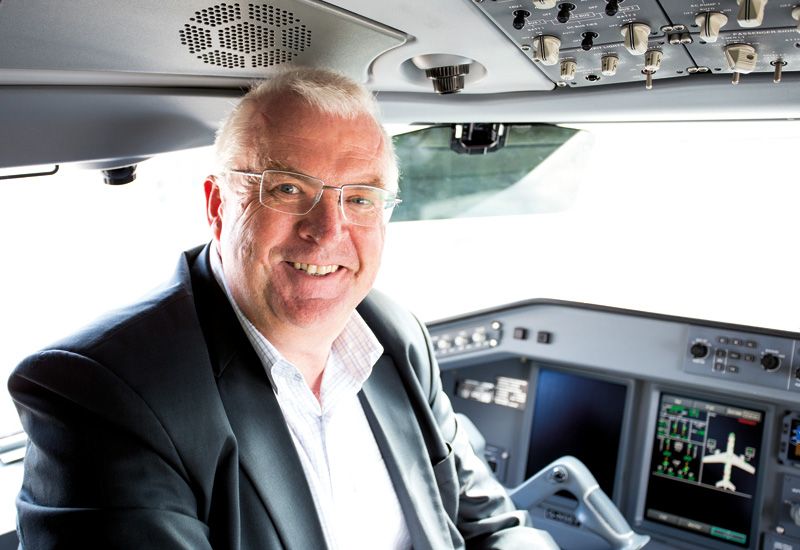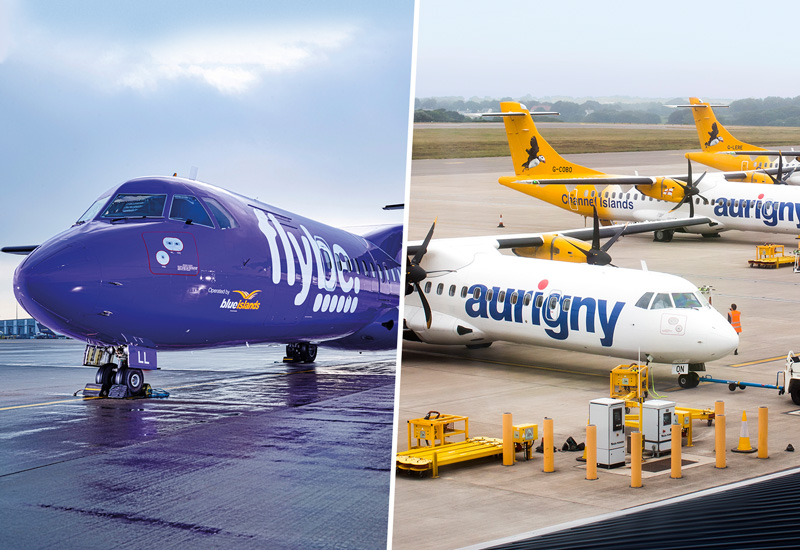


An efficiency review of the States-owned airline has suggested that many of Aurigny's problems are not its fault, as two senior Deputies said the States were to blame for giving the company conflicting aims.
An independent review of Aurigny's efficiency, which was carried out by air transport consultancy firm Nyras at a cost in the region of £50,000 to £60,000, has been published today.
It says there is room for improvement at the airline, but found Aurigny to be "generally well managed".
"There are always areas for improvement and risks to be mitigated. [However] A number of the inefficiencies are either outside their control or only partially in their control."
News of a nosedive in Aurigny's finances only emerged as Nyras was concluding its review, which is drawn attention to in point 11 of its executive summary.
"Since writing our report a profit warning has been announced about Aurigny. We have not seen any detail," Nyras said. "We believe it is reasonable to assume that much of this deterioration can be attributed to the significant increase in supply between GCI and SE England exceeding demand. The impact could deteriorate into the low season winter. This highlights the need for a realistic, holistic and optimised aviation strategy for the island."

Pictured: Deputy Ferbrache said there was "more good than bad" in the report.
States Trading Supervisory Board President Peter Ferbrache said this final statement was perhaps the most significant.
"We need to have a proper review of where we are going with air transport," he said.
"Aurigny has decent management, but it is being asked to do a very difficult job in very difficult circumstances. It is mandated by the States to break even but it is also meant to be an economic enabler."
Scrutiny President Chris Green jointly commissioned the independent review as a follow-up to a 2015 Scrutiny report.
"One of the points raised was that there remains this inherent danger that an airline in public ownership can become inefficient over time," he said. "Our thinking was to test that independently and get some objective analysis on exactly how efficient or inefficient Aurigny is."
He said the lack of joined-up approach to air links was largely to blame for issues that are often attributed to Aurigny.
"Aurigny can only play the cards it has been dealt and unfortunately the aims we have given them are conflicting - to run services like Gatwick and Alderney, to operate in a quasi open skies environment with other airlines being given subsidies by one States committee, that is not a healthy formula for Aurigny to end up in the black."
Pictured: Chris Green hoped the report would restore some public confidence in Aurigny's management.
"[There is a public perception] that Aurigny is wasting money hand over fist, but this report demonstrates that is not the case."
The absence of an air transport strategy is the main problem according to Deputy Green, who is frustrated by government's lack of progress in this area.
"There has been a lack of progress - it needs to be done well and I really think it needs to be done by the end of the term. It is that important."
Explaining where the States was going wrong, he said individual committees were working to improve air links, but were doing so without any over-arching policy.
"It is the net effect of how our system of government works. We have committees generally fulfilling their mandates but in the aggregate it doesn’t make sense and I think that needs to be rationalised."
A spokesperson for Aurigny said the company welcomed the report.
"The Aurigny team are all encouraged by the conclusions within the report stating that Aurigny is generally well-managed and that we are efficient in areas where we have control. While there are recommendations and opportunities identified, these are measured and realistic given the operational and geographical environment constraints recognised.

Pictured: Nyras suggested that Aurigny and Blue Islands work more closely together for the benefit of the Bailiwick.
"It’s reassuring that the competitor analysis illustrates how many aspects of our operations are run more efficiently than other similar regional airlines.
"The conclusions highlight the challenges that Aurigny faces when other operators are offered subsidies and the financial impact of such actions. In addition, the report acknowledges the operational and financial inefficiencies of running the Alderney routes.
"Finally, we welcome the recommendations within the report that there needs to be a joined-up air transport framework for Guernsey and Aurigny looks forward to playing its role within a realistic, holistic and optimised aviation strategy that is fit for purpose."
Pictured top: Aurigny CEO Mark Darby.
Comments
Comments on this story express the views of the commentator only, not Bailiwick Publishing. We are unable to guarantee the accuracy of any of those comments.